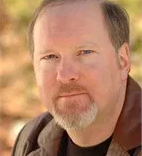Remembering Frederik Pohl and A.C. Crispin
Science fiction just suffered two great blows last week, losing two influential writers and wonderful people, Frederik Pohl and A.C. Crispin. I knew them both well and admired their work.
When writing an appreciation, it’s easy to get carried away with hyperbole. In Frederik Pohl’s case, it is all true. Looking back on his many-pronged career in the genre, I cannot over-emphasize the far-reaching impact he had on science fiction—from his brilliant, award-winning writings that added whole new concepts to our general conversation, to his editing of Galaxy magazine, to being one of the first high-powered agents who recognized the value of the field, and to his wise mentoring of so many new writers with the Writers of the Future contest. In particular he is best known for his Heechee (Gateway) series and MAN-PLUS (which was an important influence on my own novel CLIMBING OLYMPUS). I knew Fred for about fifteen years, and had the honor of serving with him as a fellow Writers of the Future judge.
Even though I was more than four decades his junior, he always treated me as a respected colleague. Fred Pohl was a soft-spoken, erudite man who always had something important to say. His influence on the field will continue for generations to come.
Although I didn’t know him at the time, I remember very clearly how he proposed to Elizabeth Ann Hull (a very classy lady) in one of the coolest science fiction ways possible: he took out a large ad in Locus magazine stating simply, “Betty, Marry me—Fred.”
On a more literary note, I’ll never forget reading his novel GATEWAY. I was partway through the book before I was due to set off on a rigorous backpacking trip in the San Juan Mountains of southern Colorado. I didn’t want to stop reading, but I didn’t want to take my (heavy) leatherbound copy with me—every ounce counts in perspiration and effort while backpacking, So I picked up a battered used paperback, tore off the pages up to the point I had read, and carried that with me as a disposable copy. With my 50-pound backpack, I trudged high up into Chicago Basin where I set up camp to climb three 14,000-ft peaks. Each night at camp, by the light of a small battery powered lantern while keeping warm next to a fire, I would read more pages in GATEWAY, tear them off, and add them to the fire. (Not an editorial comment! I needed to lighten my load, and I saw it as letting them shine one last time.) While I was in the depths of a spectacular, isolated mountain wilderness, Fred’s words transported me to even more exotic worlds across the universe.
ANN CRISPIN was an even closer personal friend. She had started publishing five years before I did, so I read her work as I contemplated breaking into the business. Ann was one of the most beloved of all Star Trek writers and also known for her popular Starbridge series, as well as new Pirates of the Caribbean novels, Star Wars novels, and many movie novelizations.
I first started writing my Star Wars novels a year before I met Ann. At the time Star Trek was a bigger franchise than Star Wars, and (as a big Trek fan as well), I hoped I could approach Pocket Books with an idea for a Star Trek novel. I really wanted to write the life story of Spock’s father, Sarek. When I met Ann for the first time at the Nebula Awards ceremonies on the Queen Mary, I wanted to ask if she had any tips on how I could pitch my idea. As soon as I introduced myself, she told me with great excitement about a new Star Trek novel she had just sold. She would be writing the life story of Sarek! Too late—and when I told her my idea, she was embarrassed and apologetic.
A couple years later, Rebecca and I were guests at DisneyWorld with Ann for Contact 96, which commemorated the reopening of Tomorrowland exhibits. We met astronauts Scott Carpenter and Jim Lovell, as well as Bill Mumy and Jonathan Harris from the old Lost in Space TV show. Ann spent a lot of time with Rebecca and me doing signings, meeting fans, and riding rides. Later, when Ann started to write for Star Wars as well, producing the Han Solo Trilogy, I gave her a lot of advice and read her books in manuscript. Ann’s novel THE HUTT GAMBIT was the first time anyone had ever dedicated a book to me.
Ann was fiercely supportive and protective of writers and their rights, she took on Lucasfilm and Bantam Books to protect royalties for writers; she took on Pocket Books to get British royalties for writers. She ran the popular and influential Writer Beware group, saving numerous careers and prying money out of the hands of publishers. Each year she taught an intensive writers’ workshop at DragonCon and helped guide many new writers into the business.
The entire Science fiction universe is much smaller without Frederik Pohl and A.C. Crispin. Read their books and remember them.

